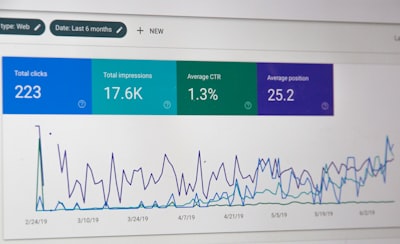Key Highlights
- Digital marketing is crucial for coaches to promote their coaching business and attract potential clients.
- The five most effective digital marketing channels for coaches are search engine optimization (SEO), email marketing, social media marketing, content marketing, and collaborations or joint ventures.
- A strong online foundation, including a professional website and effective branding, is essential for successful digital marketing strategies.
- Measuring key performance indicators (KPIs) and adapting strategies based on data analysis are crucial for ongoing success in digital marketing.
- By implementing the right digital marketing strategies, coaches can reach a wider audience, establish credibility, and attract their ideal clients.
Introduction
Digital marketing has become an increasingly important aspect of promoting any business, and coaching is no exception. In today’s competitive market, coaches need to have a strong online presence in order to attract potential clients and establish themselves as industry experts. Digital marketing, including the use of social media, email marketing, and SEO techniques, provides coaches with a variety of channels and strategies to reach their target audience, increase their visibility, and ultimately grow their coaching business. As a life coach, career coach, or health coach, understanding and utilizing digital marketing can be a powerful tool in attracting and retaining clients.
However, navigating the landscape of digital marketing can be challenging, especially for coaches who may not have a background in marketing. That’s why it’s important for coaches to understand the key insights and strategies that can help them effectively utilize digital marketing to their advantage.
In this blog, we will explore the power of digital marketing for coaches and provide key insights into the most effective channels and strategies. From understanding the evolution of digital marketing in the coaching industry to laying the foundations for a successful digital marketing strategy, we will cover everything coaches need to know to boost their online presence and attract their dream clients. With the right strategies, coaches can see significant results and growth in their business. So let’s dive in and unlock the potential of digital marketing for coaches.
Understanding the Landscape of Digital Marketing for Coaches
In order to effectively utilize digital marketing for their coaching business, coaches need to have a clear understanding of the digital marketing landscape. Digital marketing refers to the marketing efforts and strategies that are carried out online to promote a business or brand. For coaches, digital marketing is all about establishing a strong online presence, reaching their target audience, and attracting potential clients. This can be done through various channels such as search engine optimization (SEO), social media marketing, email marketing, content marketing, and collaborations or joint ventures.
The Evolution of Digital Marketing in the Coaching Industry
Digital marketing has evolved significantly over the years, and its importance in the coaching industry has also grown. In the past, coaches relied primarily on traditional marketing methods such as word-of-mouth referrals and networking events to promote their coaching services. However, with the rise of the internet and the increasing use of digital platforms, coaches now have access to a wide range of digital marketing tools and strategies that can help them reach a larger audience and attract potential clients.
Successful coaches today understand the power of digital marketing and leverage it to their advantage. They use various digital marketing techniques to establish their online presence, create valuable content, engage with their target audience, and ultimately attract their ideal clients. By embracing digital marketing, coaches can not only expand their reach but also position themselves as industry experts and build a strong reputation in their niche.
Why Digital Marketing is Essential for Coaches Today
Digital marketing is essential for coaches today because it provides them with a cost-effective and efficient way to reach their potential clients. With the increasing use of the internet and social media platforms, coaches have the opportunity to connect with their target audience and showcase their expertise on a global scale. By implementing digital marketing strategies, coaches can effectively promote their coaching services, attract their ideal clients, and stand out from the competition.
Traditional marketing methods can be time-consuming and costly, whereas digital marketing allows coaches to reach a larger audience with minimal investment. By utilizing digital marketing channels such as social media, email marketing for new customers, and search engine optimization, coaches can engage with their target audience, build brand awareness, and drive traffic to their coaching website. In today’s digital age, coaches who neglect digital marketing may miss out on valuable opportunities to grow their coaching business and connect with their potential clients.
Laying the Foundations: What You Need Before Starting
Before diving into digital marketing, coaches need to lay the foundations for a successful strategy. This includes having a professional coaching website and building an email list of potential clients.
A coaching website serves as the hub of a coach’s online presence and is essential for showcasing their services, expertise, and testimonials. It should be user-friendly, visually appealing, and optimized for search engines to drive web traffic. A website also provides a platform for coaches to share valuable content, engage with their audience, and capture leads.
In addition to a website, building an email list is crucial for effective digital marketing. Coaches can offer valuable resources, such as ebooks or webinars, in exchange for visitors’ email addresses. An email list allows coaches to stay in touch with potential clients, nurture relationships, and promote their coaching services.
Essential Digital Marketing Tools and Platforms for Coaches

When it comes to digital marketing, coaches have access to a wide range of tools and platforms that can help them reach their target audience and promote their coaching services. Here are some essential digital marketing tools and platforms for coaches:
- Social media platforms: Social media platforms such as Facebook, Instagram, Twitter, and LinkedIn provide coaches with a means to connect with their target audience, share valuable content, and build brand awareness.
- Email marketing: Email marketing allows coaches to nurture relationships with potential clients, share valuable resources, and promote their coaching services. Platforms like Mailchimp and ConvertKit make it easy to create and automate email campaigns.
- Search engine optimization (SEO): SEO is the process of optimizing a website to rank higher in search engine results. Coaches can improve their website’s visibility by optimizing their content, meta tags, and URL structure, among other factors.
Identifying Your Target Audience and Niches
Identifying your target audience and niche markets is a crucial step in digital marketing for coaches. By understanding who your ideal clients are and what specific needs or challenges they have, you can tailor your marketing efforts to reach and resonate with them.
Start by defining your coaching niche. This could be a specific industry or a particular group of individuals who can benefit from your coaching services. By narrowing down your focus, you can position yourself as an expert in that niche and attract clients who are specifically looking for the solutions you provide.
Once you have identified your niche, conduct market research to understand your target audience’s demographics, preferences, and pain points. This will help you create targeted marketing messages and choose the right digital marketing channels to reach your ideal clients. By effectively targeting your marketing efforts, including providing detailed instructions, you can maximize your return on investment and attract clients who are the best fit for your coaching services.
Crafting Your Unique Selling Proposition (USP) as a Coach
Crafting a unique selling proposition (USP) is essential for coaches to differentiate themselves from their competitors and attract their ideal clients. Your USP is what sets you apart from other coaches and communicates the unique value you bring to your clients.
To craft your USP, start by defining your coaching philosophy and identifying the specific benefits and outcomes that clients can expect from working with you. What makes your coaching approach different or better than others? What unique expertise or experience do you bring to the table?
Once you have defined your USP, incorporate it into your branding and marketing materials to build brand awareness and attract clients who resonate with your unique offering. Your USP should be clear, concise, and compelling, so that potential clients instantly understand why they should choose you as their coach.
How to Define and Communicate Your Coaching Philosophy
Your coaching philosophy is the foundation of your coaching practice and plays a crucial role in attracting your ideal clients. Defining and communicating your coaching philosophy is an important step in building your brand awareness and positioning yourself as an expert in your niche.
To define your coaching philosophy, start by identifying your core values, beliefs, and principles as a coach. What specific approach or methodology do you follow? What are the key outcomes or benefits that clients can expect from your coaching?
Once you have defined your coaching philosophy, communicate it consistently through your branding, website content, and marketing materials. Clearly articulate how your coaching philosophy aligns with your target audience’s needs and resonates with their goals and aspirations. By effectively communicating your coaching philosophy, you can attract clients who are seeking the unique benefits and outcomes that you offer as a career coach.
Differentiating Yourself from Competitors in the Digital Space
In the crowded digital space, it’s important for coaches to differentiate themselves from their competitors and stand out to their target audience. By highlighting your unique strengths and competitive advantages, you can attract clients who resonate with your coaching approach and expertise.
One way to differentiate yourself is by developing a strong online presence. This includes having a professional website, engaging on social media, and creating valuable content through content creation that showcases your expertise and unique perspective. By consistently sharing valuable insights and demonstrating your expertise, you can build credibility and attract clients who trust in your abilities as a coach.
Additionally, consider implementing unique marketing strategies that align with your target audience’s preferences and needs. This could include hosting webinars, creating podcasts, or offering specialized coaching packages. By offering something that sets you apart from your competitors, you can attract clients who are seeking a specific solution or approach.
Step-by-Step Guide to Launching Your Digital Marketing Strategy
Launching a digital marketing strategy requires careful planning and execution. Follow this step-by-step guide to effectively promote your coaching business and attract your target audience:
- Set clear goals: Define what you want to achieve with your digital marketing efforts, whether it’s to increase website traffic, generate leads, or boost brand awareness.
- Identify your target audience: Understand who your ideal clients are and what they are looking for in a coach.
- Develop a content marketing strategy: Create valuable and engaging content that resonates with your target audience and positions you as an industry expert.
- Choose the right digital marketing channels: Select the channels that align with your target audience’s preferences and reach, such as social media, email marketing, or search engine optimization.
- Implement and measure: Launch your digital marketing campaigns and track their performance using key performance indicators (KPIs) to ensure they are effective in reaching your goals.
By following these steps, you can create a solid foundation for your digital marketing strategy and effectively promote your coaching business to your target audience.
Step 1: Setting Up Your Professional Coaching Website
Setting up a professional coaching website is the first step in establishing your online presence and attracting potential clients. Here are some key considerations when setting up your coaching website:
- Choose a user-friendly website platform: Select a website platform that is easy to use and offers the features you need, such as WordPress or Squarespace.
- Design an appealing and intuitive layout: Create a visually appealing website that is easy to navigate and showcases your coaching services and expertise.
- Optimize your website for search engines: Incorporate relevant keywords and meta tags throughout your website to improve its visibility in search engine results.
- Include compelling and informative content: Provide valuable content that addresses your target audience’s needs and showcases your coaching approach and expertise.
- Incorporate testimonials and case studies: Highlight the success stories of your past clients to build credibility and trust with potential clients.
By following these steps, you can create a professional coaching website that effectively represents your brand and attracts potential clients.
Step 2: Optimizing Your Site for Search Engines (SEO)

Optimizing your coaching website for search engines is crucial for increasing its visibility and attracting organic traffic. Here are some key strategies for search engine optimization (SEO):
- Conduct keyword research: Identify relevant keywords that your target audience is likely to search for. Use tools like Google’s Keyword Planner to find popular and relevant keywords.
- Incorporate keywords strategically: Include your target keywords in your website’s meta tags, headers, and content. However, avoid keyword stuffing, as it can negatively impact your search engine rankings.
- Improve page load speed: Optimize your website’s performance by reducing page load times. This can be achieved by optimizing images, using caching plugins, and minimizing server response times.
- Build high-quality backlinks: Seek opportunities to earn backlinks from reputable websites in your industry. This can improve your website’s authority and visibility in search engine results.
- Consider running Google Ads: Paid search advertising can help boost your website’s visibility in search engine results while you work on improving your organic rankings.
By implementing these SEO strategies, you can improve your coaching website’s visibility in search engine results and attract organic traffic from potential clients.
Step 3: Engaging with Your Audience through Content Marketing
Content marketing is a powerful strategy for engaging with your target audience and establishing yourself as an industry expert. Here are some key steps for effective content marketing:
- Start a blog: Create a blog on your coaching website and regularly publish valuable and informative articles that address your target audience’s needs and pain points.
- Offer valuable resources: Create lead magnets such as ebooks, checklists, or webinars that provide additional value to your audience in exchange for their contact information.
- Share your content on social media: Promote your blog posts and resources on social media platforms to expand your reach and engage with your audience.
- Encourage audience engagement: Encourage your audience to leave comments, share their thoughts, and ask questions on your blog posts and social media posts. Respond to their comments and engage in conversations to build a sense of community.
- Collaborate with other experts: Write guest posts for other relevant websites or invite guest bloggers to contribute to your blog. This can help you reach a wider audience and provide fresh perspectives to your readers.
By consistently creating valuable content and engaging with your audience, you can establish yourself as an industry leader and attract potential clients to your coaching business.
Step 4: Leveraging Social Media to Build Connections
Social media platforms provide coaches with a powerful tool for building connections with their target audience and expanding their online presence. Here are some key strategies for leveraging social media:
- Choose the right platforms: Identify the social media platforms that your target audience is most active on and create a presence on those platforms.
- Share valuable and engaging content: Regularly post content that provides value to your target audience, such as tips, insights, and success stories.
- Engage with your audience: Respond to comments, messages, and mentions to build relationships and foster engagement with your audience.
- Collaborate with influencers: Partner with influencers or other industry experts to expand your reach and gain visibility within your target audience.
- Utilize paid advertising: Consider running targeted social media ads to reach a larger audience and promote your coaching services to potential clients.
By effectively leveraging social media, coaches can build brand awareness, engage with their target audience, and attract potential clients to their coaching business.
Step 5: Implementing an Email Marketing Campaign
Email marketing is a powerful strategy for nurturing relationships with potential clients and promoting your coaching services. Here are some key steps to implementing an effective email marketing campaign:
- Build an email list: Offer valuable resources, such as ebooks or webinars, in exchange for visitors’ email addresses. This allows you to capture leads and build a targeted email list.
- Segment your email list: Divide your email list into different segments based on factors such as interests, demographics, or engagement levels. This allows you to send targeted and personalized emails to each segment.
- Create valuable content: Provide valuable and informative content in your emails to engage your subscribers and position yourself as an industry expert.
- Automate your campaigns: Use email marketing tools like Mailchimp or ConvertKit to automate your email campaigns. This allows you to send personalized emails at scale and nurture relationships with your subscribers.
- Measure and optimize: Track the performance of your email campaigns using metrics such as open rates, click-through rates, and conversions. Use this data to optimize your campaigns and improve your results over time.
By implementing an email marketing campaign, coaches can nurture relationships with potential clients, promote their coaching services, and ultimately drive conversions.
Measuring Success: Tracking and Analyzing Your Digital Marketing Efforts

Measuring the success of your digital marketing efforts is crucial for understanding what is working and what needs improvement. Here are some key considerations for tracking and analyzing your digital marketing efforts:
- Define key performance indicators (KPIs): Identify the metrics that are most important to your goals, such as website traffic, conversion rates, or social media engagement.
- Utilize analytics tools: Use tools like Google Analytics, social media analytics, and email marketing analytics to track and analyze your marketing efforts.
- Regularly review and analyze data: Monitor your KPIs regularly and analyze the data to gain insights into the effectiveness of your digital marketing strategies.
- Make data-driven decisions: Use the data to inform your marketing decisions and make adjustments to your strategies as needed.
By tracking and analyzing your digital marketing efforts, you can identify areas for improvement, optimize your strategies, and drive better results for your coaching business.
Key Performance Indicators (KPIs) for Coaches to Monitor
When it comes to measuring the success of your digital marketing efforts as a coach, there are several key performance indicators (KPIs) that you should monitor. These KPIs can provide valuable insights into the effectiveness of your marketing strategies and help you make data-driven decisions. Here are some important KPIs for coaches to monitor:
- Website traffic: Measure the number of visitors to your website to gauge the effectiveness of your digital marketing efforts in driving traffic.
- Conversion rates: Track the percentage of website visitors who take a desired action, such as signing up for a newsletter or booking a coaching session.
- Social media engagement: Monitor likes, comments, shares, and followers on your social media platforms to assess audience engagement and brand awareness.
- Email open and click-through rates: Measure how many subscribers open and interact with your emails to evaluate the effectiveness of your email marketing campaigns.
By monitoring these KPIs, you can gain valuable insights into the performance of your digital marketing efforts and make informed decisions to optimize your strategies.
Key Performance Indicator | Definition |
Website traffic | The number of visitors to your coaching website |
Conversion rates | The percentage of website visitors who take a desired action, such as signing up or booking a coaching session |
Social media engagement | Likes, comments, shares, and followers on social media platforms |
Email open and click-through | The percentage of subscribers who open and interact with your emails |
Utilizing Analytics Tools to Refine Your Marketing Strategies
Analytics tools play a crucial role in refining your marketing strategies. By analyzing data and gaining insights into your marketing efforts, you can make informed decisions to improve your strategies and maximize your return on investment. Here are some popular analytics tools that coaches can utilize:
- Google Analytics: Provides detailed insights into website traffic, user behavior, and conversion rates.
- Social media analytics: Platforms like Facebook Insights and Twitter Analytics offer data on audience engagement, reach, and demographics.
- Email marketing analytics: Tools like Mailchimp and ConvertKit provide data on open rates, click-through rates, and conversions for your email campaigns.
By utilizing these analytics tools, coaches can gain valuable insights into their marketing strategies, identify areas for improvement, and make data-driven decisions to optimize their efforts.
Advanced Digital Marketing Techniques for Coaches
While the foundational digital marketing strategies we have discussed so far are essential for coaches, there are also advanced techniques that can further enhance your digital marketing efforts. Here are two advanced digital marketing techniques for coaches:
- Paid advertising: Consider investing in paid advertising platforms like Google Ads or Facebook Ads to reach a wider audience and target specific demographics.
- Collaboration and joint ventures: Explore opportunities to collaborate with other coaches or brands in your industry to expand your reach and attract new clients.
By incorporating these advanced techniques into your digital marketing strategy, you can take your coaching business to the next level and achieve even greater results.
Harnessing the Power of Paid Advertising (PPC and Social Media Ads)
Paid advertising platforms like Google Ads and Facebook Ads can be powerful tools for coaches to reach a wider audience and attract potential clients. Here’s how coaches can harness the power of paid advertising:
- Google Ads: Create targeted search ads that appear when potential clients search for coaching services related to your niche. Use relevant keywords and compelling ad copy to attract clicks and drive traffic to your coaching website.
- Facebook Ads: Leverage Facebook’s advanced targeting options to reach your ideal clients based on demographics, interests, and behaviors. Create engaging ad content and compelling offers to capture the attention of your target audience and drive conversions.
By investing in paid advertising, coaches can increase their online visibility, reach a larger audience, and attract potential clients who are actively searching for coaching services.
Collaborating with Other Coaches and Brands for Greater Reach
Collaborating with other coaches and brands in your industry can be a powerful strategy for expanding your reach and attracting new clients. By partnering with others who share a similar target audience, you can tap into their networks and gain exposure to a wider audience. Here are some collaboration ideas for coaches to reach the right people:
- Joint webinars: Host a webinar with another coach or brand to provide valuable content to your target audience and reach a larger audience.
- Guest blogging: Write guest blog posts for other coaches or brands in your industry to showcase your expertise and gain exposure to their audience.
- Cross-promotion: Collaborate with other coaches or brands to cross-promote each other’s services or products to your respective audiences.
By collaborating with others, you can leverage their networks and gain access to a wider audience, ultimately attracting new clients and increasing your coaching business’s visibility.
Overcoming Common Digital Marketing Challenges for Coaches

While digital marketing offers numerous benefits for coaches, it also presents some challenges. Here are three common digital marketing challenges for coaches and how to overcome them:
- Navigating algorithm changes: Stay up to date with algorithm changes on platforms like social media to ensure your content continues to reach your target audience. Diversify your digital marketing efforts to minimize the impact of algorithm changes.
- Addressing audience engagement: Engage with your audience on social media, respond to comments and messages, and create compelling content that encourages interaction.
- Managing time and resources: Prioritize your digital marketing efforts based on your goals and available resources. Outsource tasks or automate processes to streamline your efforts.
By proactively addressing these challenges, coaches can overcome obstacles and maximize the effectiveness of their digital marketing strategies.
Navigating Algorithm Changes and Platform Updates
Algorithm changes on social media platforms can have a significant impact on the visibility of your content. To navigate these changes and ensure your content reaches your target audience, consider the following strategies:
- Stay informed: Keep up to date with the latest algorithm changes and platform updates by following industry blogs, attending webinars, or consulting with a marketing coach.
- Diversify your channels: Don’t rely solely on one social media platform. Diversify your digital marketing efforts by using multiple platforms and channels to reach your target audience.
- Focus on engagement: Algorithms often prioritize content that generates engagement. Create compelling content that encourages likes, comments, and shares to increase your visibility.
- Analyze and adapt: Monitor the performance of your content and campaigns using analytics tools. Adjust your strategies based on data and insights to optimize your results.
By staying informed, diversifying your channels, focusing on engagement, and analyzing your data, you can navigate algorithm changes and platform updates to maximize the effectiveness of your digital marketing efforts.
Addressing Audience Engagement and Retention Hurdles
Audience engagement and retention are critical for the success of your digital marketing efforts as a coach. To address these challenges, consider the following strategies:
- Provide valuable content: Create content that resonates with your target audience and addresses their needs and challenges. Offer actionable tips, insights, and solutions that demonstrate your expertise and provide value.
- Foster a sense of community: Encourage audience engagement by responding to comments, asking for feedback, and encouraging discussions. Build a sense of community around your brand and make your audience feel valued and heard.
- Implement retention strategies: Develop strategies to keep your audience engaged and retain their interest over time. This can include offering exclusive content, hosting webinars or workshops, or providing ongoing support and resources.
By focusing on audience engagement, implementing retention strategies, and consistently providing valuable content, you can build a loyal and engaged audience for your coaching business.
Conclusion
In today’s digital age, embracing the power of digital marketing is crucial for coaches to thrive in a competitive landscape. By defining your unique selling proposition, engaging with your target audience through content and social media, and utilizing email marketing campaigns, you can enhance your online presence. Remember to measure success through key performance indicators and refine your strategies using analytics tools. Embrace advanced techniques like paid advertising and collaborations for broader outreach. Overcoming challenges such as algorithm changes and audience engagement hurdles will set you apart. Stay updated on digital marketing trends to continuously evolve and attract new coaching clients effectively.
Frequently Asked Questions
How Often Should Coaches Update Their Digital Marketing Strategy?
Coaches should regularly review and update their digital marketing strategy to ensure it remains effective and aligned with their goals. Best practices suggest evaluating your strategy at least quarterly, but the frequency may vary depending on specific circumstances and industry trends. It’s important to stay informed about the latest digital marketing trends and adapt your strategy accordingly to maximize its impact on your coaching business.
Can Digital Marketing Alone Attract New Coaching Clients?
While digital marketing is a powerful tool for attracting new coaching clients, it should not be relied upon as the sole method. Building relationships, networking, and referrals also play a vital role in attracting new clients. Digital marketing efforts should be part of a holistic marketing approach that includes various strategies to maximize lead generation and client acquisition.
What Are the Most Cost-Effective Digital Marketing Tactics for Coaches?
The most cost-effective digital marketing tactics for coaches depend on their target audience and goals. Content marketing, social media marketing, and email marketing are often considered cost-effective strategies that provide a high return on investment. It’s important to analyze your target audience and choose tactics that align with their preferences and behaviors to maximize cost-effectiveness.
How Can Coaches Measure the ROI of Their Digital Marketing Activities?
Coaches can measure the return on investment (ROI) of their digital marketing activities by tracking key performance indicators (KPIs) such as website traffic, lead generation, conversion rates, and social media engagement. By utilizing analytics tools and analyzing the data, coaches can gain insights into the effectiveness of their marketing strategies and calculate their ROI.
What’s the Best Way to Stay Updated on Digital Marketing Trends for Coaches?
To stay updated on the latest digital marketing trends for coaches, it is important to engage in continuous learning and leverage online resources. Following industry blogs, attending webinars, joining coaching communities, and working with a marketing coach can provide valuable insights and guidance.


